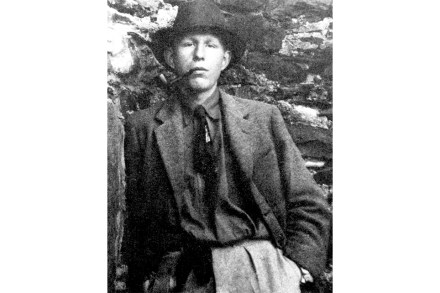‘I’ve taken to sleeping in my teeth’ – the wartime admissions of T.S. Eliot
In 1944, T.S. Eliot is 56 years old. He seems older: ‘I am getting to be a wambling old codger.’ He is war-worn: ‘I have taken, when in London, to sleeping in my teeth.’ As a fire-watcher sharing shifts, his sleep is hampered by understandable pudeur: ‘I haven’t got enough phlegm to undress completely, and I think it best to sleep in my truss, in case of sudden blasting, which is not very comfortable.’ He knows, too, that his letters are dull. To Anne Ridler, 19 June 1942, he confesses: ‘If I had any small gift for letter writing, it has been ruined years ago by the pressure of the



